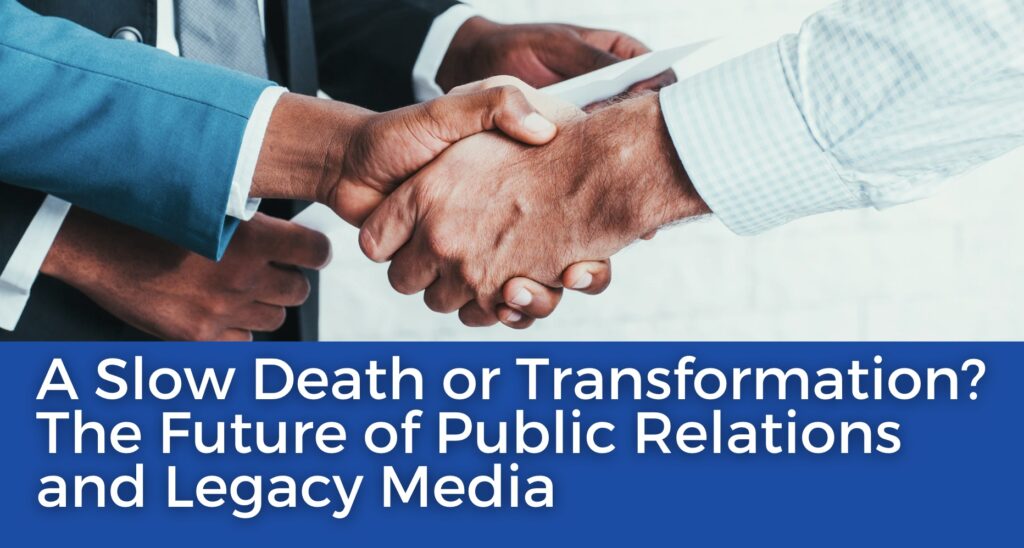With businesses facing growing financial pressures—from covering rent and payroll to managing supply chains—it’s easy to question the current relevance of public relations agencies. After all, in a world where press releases might be considered outdated, who needs a team of professionals writing up stories in a format that’s been around for decades?
Recently, the growing discourse around the decline of traditional PR and legacy media caught my attention. Some claim that conventional PR methods are losing ground as new digital platforms emerge. However, this couldn’t be further from the truth. Rather than dying, PR is transforming, evolving to meet the demands of the digital age and the shifting societal landscape.
Fragmentation of Media and Trust Issues
One of the most significant challenges today is the fragmentation of media. Digital platforms, influencers, and citizen journalism have splintered the once-unified media landscape. As traditional media loses dominance, PR professionals navigate a much more complex environment. Trust in media has declined—especially in what we now call post-trust societies—making it harder for PR practitioners to maintain strong relationships with both journalists and the public. This erosion of trust affects how the public views information, and it complicates the task of reputation management in profound ways (Critical Mention, MDPI).
Adaptation to Digital Trends
Despite these challenges, PR is evolving, just like it did more than 100 years ago when radio news began encroaching on print publications. Social media has become a central element of modern PR strategies. Professionals are increasingly integrating social media monitoring, influencer outreach, and digital storytelling into their efforts to reach niche audiences more effectively. The rise of digital platforms requires PR to engage with a wider and more diverse range of stakeholders across multiple channels, from traditional journalists to social media influencers (Critical Mention, PR Expert).
This shift underscores that PR is no longer only about press releases and media relations. It’s about creating compelling stories that resonate with specific audiences online, where the conversations are happening in real time. Digital PR is about strategy and engagement, not merely pushing out information.
Crisis Management and Reputation Building
Another core function of PR that remains crucial throughout this transformation is crisis management. In today’s hyperconnected world, crises can escalate rapidly and managing them requires more than just a phone call to a reporter. PR professionals must now monitor online conversations, respond to evolving narratives, and quickly craft responses that preserve an organization’s reputation. Social media plays an integral role here, as it allows PR practitioners to maintain transparency, foster trust, and build credibility even during challenging times (Zen Media).
PR is Thriving in the New Media Landscape
What does this all mean for the future of PR? Traditional strategies that relied heavily on “hold media”—or relying on legacy outlets to distribute content—may no longer carry as much sway, but PR itself is growing in importance regardless of the times or technology. Media fragmentation has opened up more opportunities for engagement, and while trust in media may have eroded, the need for skilled PR professionals to navigate these waters is greater than ever.
The PR landscape is expanding. Whether it’s managing relationships with The New York Times or engaging with an influential journalist on X, PR remains primarily about one thing: reputation management. The tools may have changed, but the mission remains the same.
The quote “Reports of my death have been greatly exaggerated” is often misattributed to Mark Twain. The same is true about the death of journalism or the value of PR agencies. Both are adapting and finding new life in the digital world. As long as reputation matters, the value of PR remains as vital as ever.

